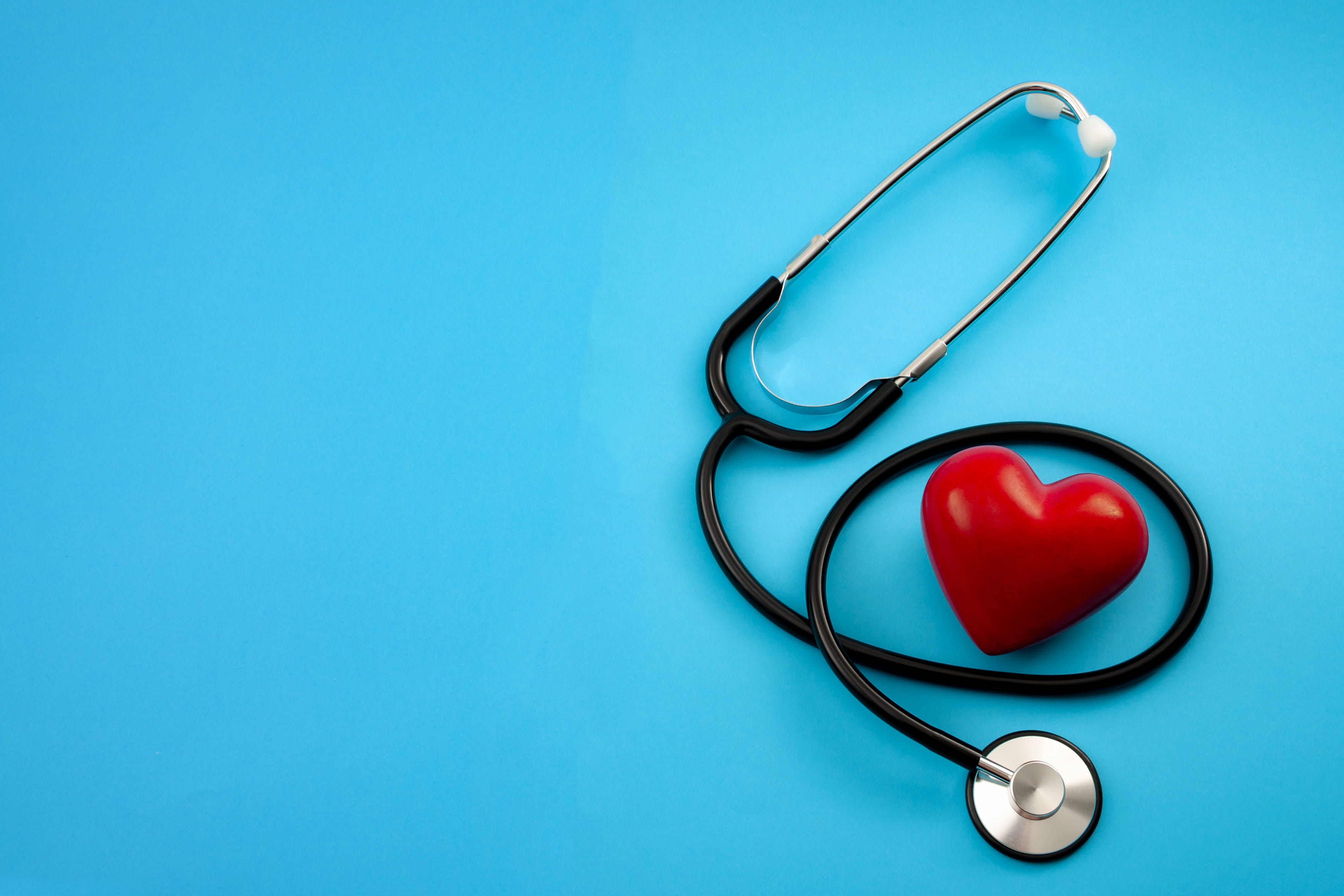The Importance of Regular Health Check-Ups: Investing in Your Well-being
- July 30,2024
- 6 Min Read

The Importance of Regular Health Check-Ups: Investing in Your Well-being
In the hustle and bustle of modern life, it's easy to overlook our health amidst our myriad responsibilities. From work deadlines to family commitments, our health often takes a backseat until a problem arises. However, proactive health management through regular check-ups is not just a luxury but a crucial investment in our well-being.
Why Regular Health Check-Ups Matter
- Early Detection Saves Lives
Regular health check-ups are instrumental in catching potential health issues early. Many serious conditions, such as hypertension, diabetes, and even cancer, may not show symptoms in their early stages. By the time symptoms appear, the disease may have progressed significantly. Routine screenings and tests recommended by healthcare professionals can detect these conditions early, when they are often more treatable and manageable.
- Prevention is Better Than Cure
Preventive care is a cornerstone of modern medicine. Health check-ups provide an opportunity for doctors to assess your current health status, identify risk factors, and provide guidance on preventive measures. This may include lifestyle changes, vaccinations, or screenings tailored to your age, gender, and medical history. By addressing potential risks early, you can significantly reduce your chances of developing serious health issues in the future.
- Maintaining Optimal Health
Beyond detecting and preventing diseases, regular health check-ups help monitor your overall well-being. Your doctor can assess vital signs like blood pressure, heart rate, and cholesterol levels, providing insights into your cardiovascular health. They can also review your immunization status, discuss mental health concerns, and offer advice on diet, exercise, and stress management. These consultations empower you to make informed decisions about your health and lifestyle.
- Personalized Care and Continuity
Establishing a relationship with a primary care physician through regular check-ups ensures personalized and continuous care. Your doctor becomes familiar with your medical history, family background, and health goals, enabling them to provide tailored advice and interventions. This continuity of care promotes better health outcomes and enhances your overall quality of life.
Overcoming Barriers to Health Check-Ups
- Time Constraints
Busy schedules often deter individuals from scheduling regular health check-ups. However, prioritizing your health is essential. Many healthcare providers offer flexible scheduling options, including evening and weekend appointments, to accommodate busy lifestyles.
- Financial Concerns
Cost can be a barrier to accessing healthcare services. Fortunately, many insurance plans cover preventive services, including annual check-ups and screenings, at little or no cost to the patient. Government programs and community health centers may also offer affordable options for those without insurance.
- Psychological Factors
Fear or anxiety about medical visits is common but manageable. Open communication with your healthcare provider about your concerns can help alleviate anxiety. Building a trusting relationship with your doctor fosters a supportive environment where you feel comfortable discussing your health openly.
Conclusion
In conclusion, regular health check-ups are not just a medical formality but a proactive approach to safeguarding your health and well-being. By investing time in preventive care, you empower yourself to live a healthier, more fulfilling life. Whether you're managing chronic conditions or striving to maintain optimal health, regular check-ups are a cornerstone of responsible self-care. Remember, your health is your most valuable asset—nurture it through regular check-ups and enjoy the benefits of a healthier tomorrow.
FAQ's
What are the tests advised to do when you are in your 30’s?
- Physical Examination: Includes measurements of height, weight, blood pressure, and a general physical assessment by a healthcare provider.
- Blood Tests:
- Complete Blood Count (CBC): Checks for anemia, infection, and overall blood health.
- Lipid Profile: Measures cholesterol levels, including HDL, LDL, and triglycerides.
- Blood Glucose: Screens for diabetes or prediabetes.
- Liver Function Tests: Assess liver health.
- Kidney Function Tests: Evaluates kidney function and checks for electrolyte balance.
- Urinalysis: Checks for kidney function, diabetes, and urinary tract infections.
- Cholesterol Screening: Measures cholesterol levels in the blood.
- Blood Pressure Measurement: Checks for hypertension (high blood pressure).
- Body Mass Index (BMI) Calculation: Assesses whether weight is within a healthy range for height.
- Cancer Screenings:
- For Men: Prostate cancer screening (PSA test).
- For Women: Pap smear (for cervical cancer) and breast examination.
- Dental Check-up: Includes examination for cavities, gum disease, and oral cancer.
- Immunizations: Ensures up-to-date vaccinations against common diseases.
- Bone Density Test: Often recommended for women to screen for osteoporosis.
- Electrocardiogram (ECG): Checks heart function and screens for cardiovascular issues.
These tests may vary based on individual health history, family history, lifestyle factors, and specific health concerns. It's important to consult with a healthcare provider to determine the most appropriate tests for your individual needs.
What are the tests advised to do in the age of 40’s?
- Physical Examination: A comprehensive assessment by a healthcare provider, including measurements of height, weight, blood pressure, and a general physical evaluation.
- Blood Tests:
- Lipid Profile: Measures cholesterol levels (HDL, LDL, triglycerides) to assess cardiovascular health.
- Blood Glucose: Screens for diabetes or prediabetes.
- Liver Function Tests: Evaluates liver health.
- Kidney Function Tests: Assesses kidney function and checks for electrolyte balance.
- Thyroid Function Tests: Screens for thyroid disorders.
- Complete Blood Count (CBC): Checks for anemia and other blood-related issues.
- Mammogram: Recommended for women to screen for breast cancer above the age of 40.
- Bone Density Test: Especially important for women to screen for osteoporosis.
- Vision and Hearing Tests: Screens for changes in vision or hearing.
- Dental Check-up: Includes examination for cavities, gum disease, and oral cancer.
- Electrocardiogram (ECG): Checks heart function and screens for cardiovascular issues.
- Immunizations: Ensures up-to-date vaccinations against common diseases, including flu vaccine and possibly others depending on individual health history.
- Pelvic Exam and Pap Smear: For women, cervical cancer screening (Pap smear) and pelvic exam.
What are the tests should be done in 50’s?
In addition to the general health screenings recommended for individuals in their 60s, there are specific hormone tests that may be advised based on individual health status and symptoms. Here are some hormone tests that may be considered:
- Thyroid Function Tests: Including TSH (Thyroid Stimulating Hormone), T3 (Triiodothyronine), and T4 (Thyroxine) levels to assess thyroid function and detect thyroid disorders such as hypothyroidism or hyperthyroidism.
- Testosterone Levels: Especially for men, to evaluate testosterone production and assess symptoms related to low testosterone (hypogonadism).
- Estrogen Levels: Particularly for women, to monitor estrogen production and assess hormonal balance, especially during menopausal transition.
- Progesterone Levels: In women, to evaluate progesterone production and assess menstrual cycle irregularities or menopausal symptoms.
- Insulin Levels: To screen for insulin resistance and assess risk for diabetes or metabolic syndrome.
- Prolactin Levels: To evaluate prolactin production and detect conditions such as hyperprolactinemia.
These hormone tests are often performed based on symptoms, risk factors, and clinical judgment by a healthcare provider. It's essential to discuss with your doctor which tests are appropriate for your specific health needs and concerns during your 60s. Regular monitoring of hormone levels can help in early detection and management of hormonal imbalances and related health conditions.
Want to book a test? Fill up the details & get a callback
Most Viewed
Premarital Health Screening
- 20 Min Read
Typhoid - Signs and Symptoms
- 3 Min Read
Home Isolation Guidelines - Covid-19 Care
- 5 Min Read
HLA B27 Detection: Flow Cytometry & PCR
- 1 Min Read














